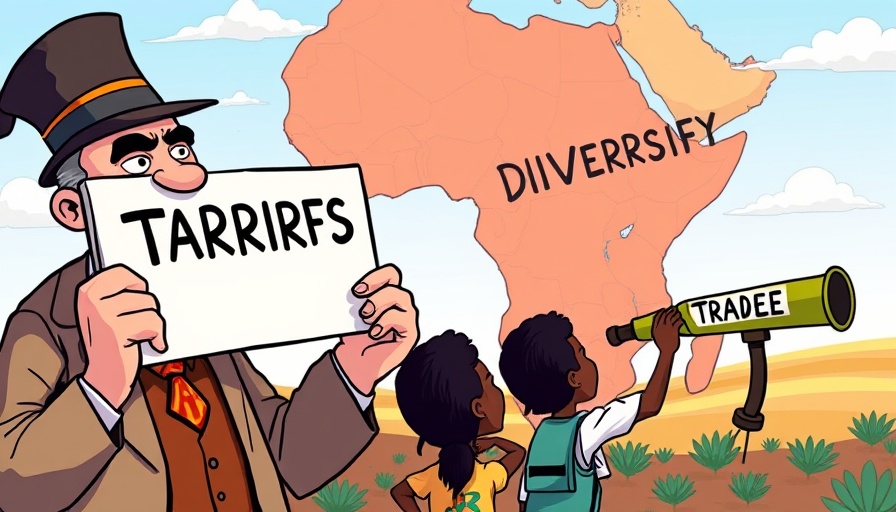
The Geopolitical Landscape: Trump Tariffs and Africa’s Strategic Response
The geopolitics surrounding Trump's tariff policies have ignited discussions on how they impact global trade dynamics, particularly in Africa. These tariffs, primarily aimed at reshaping trade relations with China, have significant implications for African nations, many of which have found opportunities amid the chaos.
Africa’s Trade Position with the U.S.
As the U.S. reevaluates its trade relationships due to tariffs, African countries are poised to emerge as crucial players in the global market. The African Continental Free Trade Area (AfCFTA) stands as a testament to Africa's collective strategy to boost intra-continental trade. By reducing reliance on traditional trade partners, African nations are seeking new avenues to strengthen their economies through greater collaboration and reduced tariffs within the continent itself.
Understanding the Shift: The Rise of Africa’s Mobile Payment Systems
The impact of these tariffs is nuanced—beyond merely affecting traditional goods, they reshape financial landscapes as well. Africa’s mobile payment sector, which has grown substantially, is now adding a staggering $190 billion to its GDP. As entrepreneurs leverage digital payments, they create an avenue for businesses to thrive locally and internationally, representing a shift away from conventional banking systems.
Future Predictions: The Effect of Ongoing Tariffs and the Role of Innovation
As the Trump administration continues to modify its tariff policies, Africa's path forward seems optimistic. 2024 could see an increase in innovation, especially in tech sectors like fintech, e-commerce, and smart cities. Companies that adopt disruptive technologies such as blockchain and IoT can utilize the AfCFTA framework to enhance trade. This digital transformation will likely redefine economic trajectories across African nations and strengthen their bargaining positions on the global stage.
Counterarguments and Diverse Perspectives: Views from Both Sides
Critics argue that while tariffs may protect local industries in the U.S., they simultaneously hurt smaller economies dependent on exports. Conversely, African responses to these tariffs reveal resilience and adaptability. Countries aim to negotiate trade agreements that can counterbalance the negative impacts of U.S. policies, showcasing a proactive rather than reactive approach.
The Bigger Picture: Global Trade Implications
This evolving narrative around trade is not just about tariffs; it reflects broader dynamics of power and influence in global economics. As the balance shifts, African nations are carving out a niche for themselves in the conversation, urging a reconsideration of their economic potential in the face of perceived adversity. Could Africa become the next frontier in global economic development as the West retools its trade strategies?
Taking Action: What Can Executives and Decision-makers Do Now?
For executives and decision-makers looking to navigate these complexities, staying informed about tariff policies and Africa’s strategic initiatives is crucial. Engaging with African markets and understanding local fintech initiatives can provide lucrative opportunities. Invest time in understanding how technology can bridge gaps and streamline processes in trade.
In conclusion, as the landscape of global trade fluctuates with tariffs and innovations, African nations provide a counter-narrative filled with resilience and forward-thinking strategies. By involving in these discussions and partnerships, business leaders can position themselves advantageously in the evolving economy.
 Add Row
Add Row  Add
Add 




Write A Comment